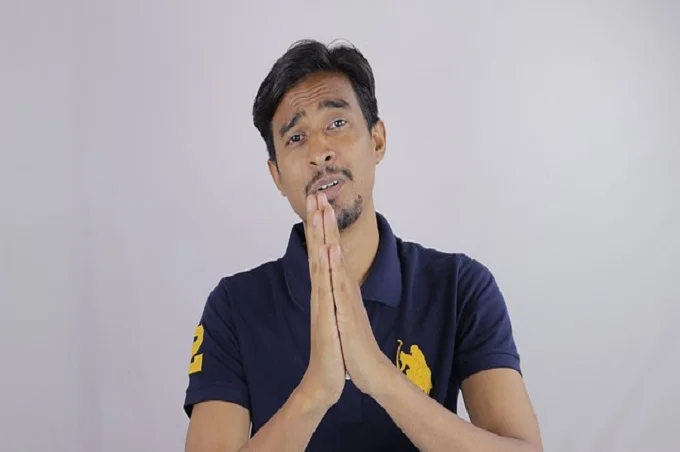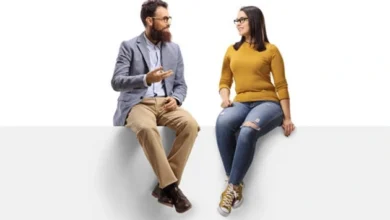Why you need to stop asking for forgiveness from others

A self-sufficient and self-confident person is distinguished from the rest by his ability to admit his mistakes and competently ask for forgiveness for them. Only those who do not want to take responsibility for their words and deeds, and are afraid that an apology will negatively affect their image, do not have to apologize.
But you can often go to extremes and, without noticing it yourself, ask for forgiveness from others even without reason. For example, you apologize for being treated unfairly or disrespectfully, or out of habit, you ask to forgive yourself for something that is not your fault at all, and that does not depend on you.
Moderation is important in everything – your desire to constantly ask for forgiveness from other people can put you in the position of a victim, lower your self-esteem, harm your mental health. We have put together a few reasons why you should reconsider your behaviour and stop apologizing just like that. To get the latest stories, install our app here
1. You create the feeling of being insecure
Try not to start your questions or requests with an apology – this does not at all indicate your good breeding. A well-mannered person will communicate with other people politely while not asking them for forgiveness for the time taken or other resources spent on it. Instead, it is worth thanking the interlocutor at the end of the dialogue for help, rather than apologizing for yourself just like that before starting a conversation.
Learn to say what you need, directly and without expressing unnecessary emotions—constantly apologizing for showing the people around you your lack of self-confidence. You appear before them as a person who is worried about a possible negative reaction and is trying to prevent it, thereby protecting himself.
2. Apologies are not always needed
No, seriously, the people around you don’t always expect you to apologize. There are situations in which an apology is completely inappropriate. Your attempt to ask for forgiveness from a person can be perceived as a mockery or a favour. Don’t apologize if you just forgot to return some small change to a friend or refused an offer to help you.
Before you apologize, analyze whether you really should do it and whether the person needs your apology at all. In general, let this procedure become a habit with you. So you will wean yourself from meaningless apologies and stop causing negative emotions in the people around you. To get the latest stories, install our app here
3. In some situations, you just show your fear of conflict
Your habit of apologizing even in situations where it is not your fault came out of nowhere. It was born from your unwillingness to come into conflict with others. It is easier for you to ask for forgiveness for your words or actions, even if there is nothing offensive in them and they did not harm anyone than to deal with the problem that has arisen.
Thus, you adapt to others and become an easy target for manipulation. One has only to create a conflict situation for a person, as he immediately gains power over you. You will do everything, not to swear and not sort things out in a raised voice. And you will sacrifice anything – sometimes even your self-respect.
4. You begin to feel guilty all the time
The best thing you can do is start watching your words. Apologies are needed when you screw up and cause someone harm or inconvenience. Every time you ask someone for forgiveness, your brain is convinced that you made a mistake. To get the latest stories, install our app here
The more often you apologize just out of habit, the more you begin to worry about the fact that you constantly do everything wrong. Ask for forgiveness only when necessary – not because of guilt, embarrassment, or shame for yourself, but for your mistakes. Only in this way will you raise your self-esteem and build relationships with others.
5. You devalue your feelings and emotions
To apologize for how you feel is to be ashamed of yourself. If you constantly apologize to other people for your emotions, which for some reason, they do not understand or are unpleasant, you devalue what you feel. Remember that every feeling you experience is important. Your attempts to ignore it can result in unpleasant consequences such as depression or other mental problems.
Remember that loved ones accept you for who you are and can support you, no matter your condition. Stop asking for forgiveness for anxiety, irritability, anger, resentment and other emotions that other people may perceive negatively. And those people who are not ready to put up with the fact that you will not always be convenient for them are not worth your attention. To get the latest stories, install our app here
6. You don’t have to apologize for needing help
Never, under any circumstances, apologize to anyone for needing someone else’s help. A person who loves and appreciates you will always give you the necessary support and even offer to intervene in the situation if he sees that you cannot cope on your own. So please do not put yourself in a humiliating position and ask for forgiveness for the fact that someone gave you time or spent their energy on you. Simple gratitude for the invested resources will suffice. To get the latest stories, install our app here
7. Others may start to think your apologies are insincere
If you ask forgiveness for yourself and your actions too often, your words begin to lose weight and cause mixed feelings in people over time. People around you will think that you are insincere with them.
Apologies should sound only when you were guilty of something. In other cases, it makes no sense to repeat the same thing without a good reason. Otherwise, one day your words may not be believed.




